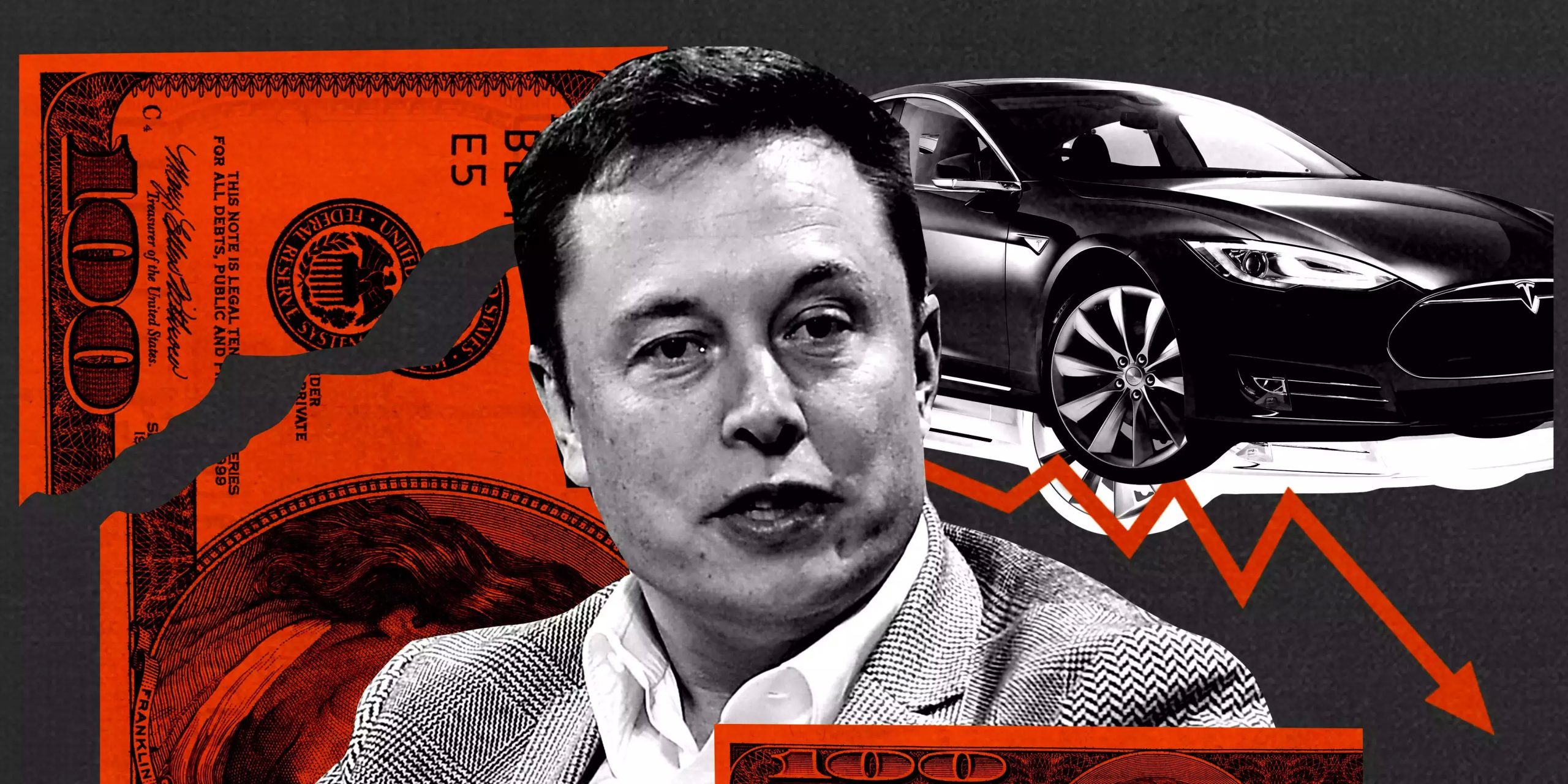Elon Musk’s electric-vehicle price war is putting Tesla in a precarious position. Facing tough new competition in the market, Tesla spent the past year slashing the prices of its models an average of around 25%. This has led to a significant shift in cost for its vehicles, with the Model 3 dropping from $48,000 to $44,380, and the luxury Model S going from $130,000 to $96,380. However, these lower prices have not resulted in higher sales for Tesla. In fact, the number of cars delivered to customers actually declined in the third quarter. As a result, the company’s revenue is dropping, and its profit margins have been squeezed. Add to that the fact that Tesla’s share of the US market has fallen from 62% at the beginning of the year to 50% and it’s clear that the company is facing significant challenges.
In the midst of this, Elon Musk and Tesla are also dealing with a major cash problem. Despite previously high margins, the company’s most recent numbers show a dramatic decline. Tesla missed Wall Street’s expectations on revenue, vehicle deliveries, and free cash flow, and its gross margins continued to shrink. Musk is attempting to address this through cost cuts, but these cuts can’t make up for the significant challenge of keeping up with demand and profitability.
The issue for Tesla goes beyond its individual operation – the company’s struggles are indicative of wider challenges facing the EV market. Despite increasing demand, the world’s transition from gas to electric cars is not as smooth as automakers initially expected. Customers around the world have become more price-sensitive, which presents a particular challenge for EVs. While the average selling price of an electric vehicle is decreasing, it’s still higher than the average selling price for new vehicles overall.
In the midst of all this, Musk and Tesla are struggling to find a solution. Musk has indicated that the company needs to make cars more affordable, but with lower prices not translating into higher demand, it’s clear that a change in strategy is needed. The challenges faced Tesla illustrate that a price war, in an industry where the underlying technology is rapidly changing, is a difficult proposition. Tesla’s competitors, including legacy automakers who can still rely on sales of combustion-engine vehicles, also have an advantage in this situation.
Ultimately, the challenges faced Tesla and the wider EV market demonstrate a complex situation. As demands change and technologies evolve, it’s clear that a strategy built on continuously lowering prices to compete won’t be viable in the long run. Rich margins don’t necessarily translate to long-term success. With these underlying issues facing the EV industry, it’s clear that finding a sustainable path forward is crucial for its future growth.

